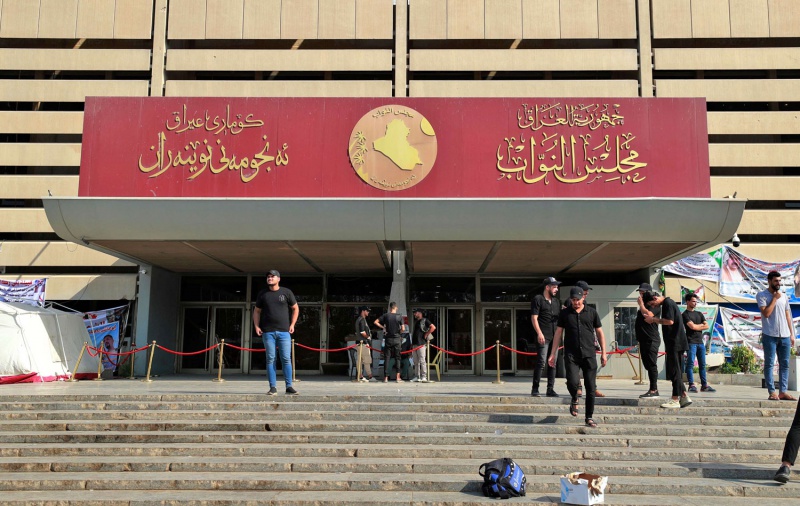Will the “framework” government open the door to the “deep state” in Iraq?
 In a television interview, Muhammad Shia al-Sudani, the candidate for the “coordinating framework” to head the Iraqi government, appeared ready for an adventure in a politically and security ambiguous moment. His statements he made clearly indicated that negotiating with Muqtada al-Sadr, the leader of the “Sadr movement”, was no longer a priority for his opponents in the Shiite parties.
In a television interview, Muhammad Shia al-Sudani, the candidate for the “coordinating framework” to head the Iraqi government, appeared ready for an adventure in a politically and security ambiguous moment. His statements he made clearly indicated that negotiating with Muqtada al-Sadr, the leader of the “Sadr movement”, was no longer a priority for his opponents in the Shiite parties.
Al-Sudani, on the evening of yesterday (Tuesday), made promises to “restrict weapons in the hands of the state,” to hold “whales of corruption” accountable, and not to hold the position for more than one term. The Coordination Framework”, which includes forces allied to Iran, is behind his candidacy.
During the interview, the Sadrist movement’s audience was circulating on their media platforms, which are often used for field mobilization, impressions described as dangerous about the outcome of a government led by the “framework”, most notably the talk that “the monopoly of financial and oil institutions is imminent by political groups.” tracking Iran.
Until the dawn of Wednesday, activists from the “Sadr movement” and the civil movement tried to pressure al-Sadr to end his political retreat and return to the scene, under the pretext of “preventing (the framework) from assuming power without a competitor.”
It is clear that the goal that Al-Sudani was looking for from the media appearance, even before he was actually assigned to form the government, was to calm the political parties, including Al-Sadr; That his government program will not be a revenge project, after 10 months of blockage, and it does not seem that he has succeeded in these endeavors so far. With the advent of Wednesday morning, the capital, Baghdad, seemed to be a scene of dismemberment to restrict protests against the “coordinating framework.”
Various information about the government formation path was filtered from the offices of the “coordinating framework”, which includes plans to control key positions, most notably the director of the prime minister’s office, the presidency of the intelligence and national security services, oil institutions and the “central bank”. “Deep” is a phrase used to describe the era of Nouri al-Maliki.
Thus, Muhammad Shia al-Sudani, for many in the Sadrist atmosphere, became a front for al-Maliki, who is still eager to return to the Cabinet Palace, and all he needs is a political figure that guarantees political calm and international and regional acceptance, while leaders in the “coordinating framework” are expanding in Governmental institutions.
The “coordinating framework”, according to Shiite leaders, needs a government that controls it, to limit the ambitions of al-Sadr and the forces of the civil current, in amending constitutional texts, and addressing the election law and the commission that the “framework” insists on changing before the elections are held; The Shiite parties will not participate in any voting round without legal guarantees to increase their seats in a different competitive atmosphere with al-Sadr.
In these complex calculations, it does not seem that the protest movement is able to gather its forces and restore the activity of October 2019; There are sharp polarizations between the forces of the movement, and the “framework” and “the current” played complex roles in exacerbating and strengthening them. Once the framework government is formed in the absence of al-Sadr, it is unlikely that the popular protest will be a force that changes the equation of governance and those in power in it.
Rawabetcenter.com
